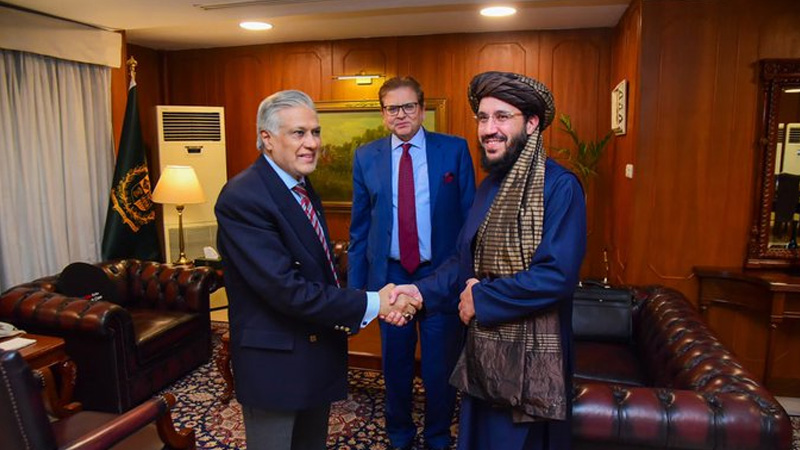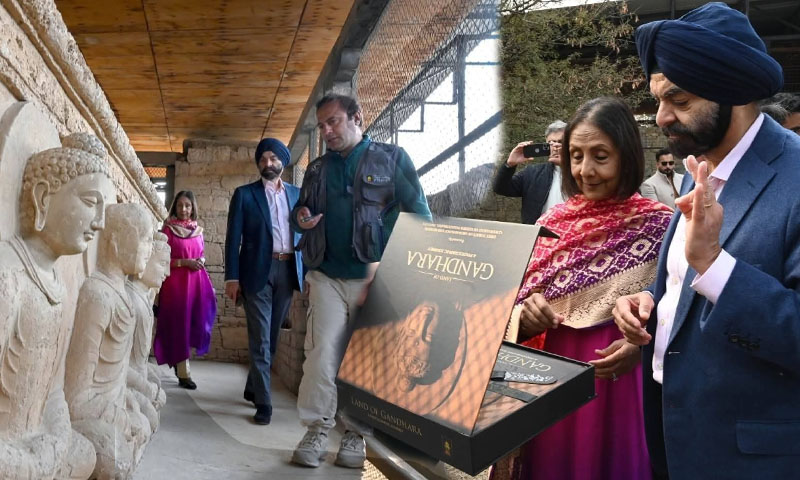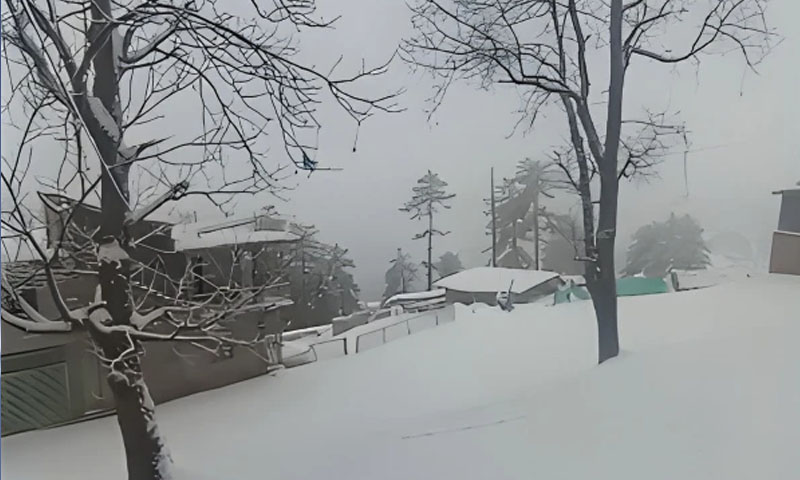- Web
- Today
Will Sadiq’s re-appointment help thaw Pak-Afghan strained ties?
-

- Web Desk
- Dec 19, 2024

By Tahir Khan
ISLAMABAD: Pakistan has reappointed former envoy Mohammad Sadiq as Special Representative for Afghanistan, with hopes pinned on his ability to normalise relations between the two uneasy neighbours. Relations between Pakistan and Afghanistan’s interim government have been strained since the Taliban came to power in 2021, making it a challenging task to bring the relationship back on track.
The key task ahead for Sadiq is to find a way forward that is acceptable to both sides, aiming for a tension-free environment. However, this is far from easy as violence attributed to the banned Tehreek-e-Taliban Pakistan (TTP) continues to haunt Pakistan. On December 17, militants attacked a police post in Shangla district, Khyber Pakhtunkhwa, killing two policemen.
Sadiq, a seasoned diplomat with extensive experience in Afghanistan, faces an uphill battle. Removing the mistrust between the two nations is a complex task, given the intricate and multifaceted nature of their current strained relations. Pakistan’s security forces are engaged in combating the TTP and other affiliated groups, which Pakistan insists are based in Afghanistan. As a matter of policy, Pakistan has refrained from negotiating with these groups, while the Afghan Taliban maintains that Pakistan must engage in dialogue with the militants, arguing that they are Pakistan’s internal issue.
In August, Afghan government spokesperson Zabihullah Mujahid reiterated Kabul’s offer to mediate between Islamabad and the TTP if Pakistan agrees. However, Pakistan’s Foreign Office spokesperson Mumtaz Zehra Baloch rejected the offer, affirming that Pakistan has no plans to negotiate with ‘terrorists.’ The Afghan interim government has not responded to repeated calls from Pakistan to take action against armed groups or hand over their fighters based in Afghanistan.
Gandapur’s Statements and Federal Government’s Reaction
Recently, Khyber Pakhtunkhwa Chief Minister Ali Amin Gandapur claimed that the federal government had agreed to his suggestion of engaging with the Afghan interim government to reduce violence in the province. In September, Gandapur had indicated his intention to send a delegation to Kabul to seek the Afghan Taliban’s assistance in bringing peace to Pakistan. His statement was met with an angry response from the federal government. While the government has not commented on Gandapur’s latest claim, no minister or official has refuted it either.
Is TTP an Afghan Taliban Proxy?
On March 18, Foreign Office spokesperson Mumtaz Zehra Baloch accused elements within Afghanistan’s leadership of patronising the TTP and using them as a proxy against Pakistan. “Such an approach against a brotherly country, which stood with the people of Afghanistan through thick and thin, manifests shortsightedness,” she said. Statements like these have created negative reactions among Afghans, particularly the Afghan Taliban leadership, complicating efforts to bridge the gap between the two sides.
Pakistan has long maintained that its armed opponents use Afghan soil for cross-border attacks, especially in Khyber Pakhtunkhwa and Balochistan. While the Afghan interim government routinely disputes this stance, international observers and regional stakeholders largely side with Pakistan. A United Nations report in July identified the TTP as the largest armed group in Afghanistan, with support from the Taliban regime. The report estimated the TTP’s strength in Afghanistan at 6,000-6,500 fighters.
Afghan Taliban’s Perspective on Pakistani Militants
Having visited Afghanistan seven times since the Taliban’s takeover of Kabul in August 2021, I have interacted with several Afghan officials, including Interior Minister Sirajuddin Haqqani. The Afghan Taliban do not appear hostile to Pakistan but claim the TTP issue is inherited from previous governments. They have offered to mediate between Pakistan and the TTP if Islamabad agrees. Pakistan initially entertained this proposal, initiating talks with the TTP in 2021. However, these negotiations failed due to tough positions taken by both sides.
The Afghan Taliban leadership, including Sirajuddin Haqqani, has expressed its willingness to help Pakistan end violence. However, the policy shift during Pakistan’s PDM government—which prioritised military action over negotiations—has further complicated matters.
Will the Afghan Taliban Address the TTP Issue?
Many analysts believe that expecting the Afghan Taliban to take direct action against the TTP is unrealistic due to ideological and historical ties between the two groups. Both fought together against US-NATO forces, and the TTP has pledged allegiance to the Afghan Taliban’s supreme leader. While the Afghan Taliban may not confront the TTP, they have reportedly begun relocating TTP fighters and their families from border regions—a move some interpret as an attempt to ease tensions. However, this is a temporary measure, and the Afghan Taliban are waiting for Pakistan’s response.
Growing Mistrust and External Players
The Afghan Taliban’s approach reflects their perception of sovereignty. They believe they are no longer under Pakistan’s influence and demand to be treated as equals. Their growing ties with Russia, China, Iran, and Central Asian states have bolstered their confidence. India, too, has taken steps to engage with the Taliban, capitalising on the mistrust between Pakistan and Afghanistan. India’s diplomatic outreach includes hosting Taliban representatives and fostering relations that could further marginalise Pakistan’s influence in Afghanistan.
Economic Issues Exacerbate Tensions
The Afghan Taliban argue that Pakistan’s restrictive trade policies and visa regulations hinder bilateral relations. Cross-border trade has declined, with additional taxes imposed on goods and limited access at border points like Ghulam Khan and Angoor Adda. Traders warn that unresolved concerns could lead to further economic downturns.
Meanwhile, both sides continue to engage in a blame game, which only widens the trust deficit. Public accusations and negative statements need to be replaced by constructive dialogue through diplomatic channels.
A Test for Sadiq’s Diplomatic Skills
Bringing both sides to a common ground for negotiation will test Mohammad Sadiq’s diplomatic mettle. His extensive experience and understanding of Afghanistan’s dynamics provide a glimmer of hope. However, achieving tangible results requires coordinated efforts, a willingness to compromise, and a focus on shared interests—peace, stability, and economic prosperity for both nations.




